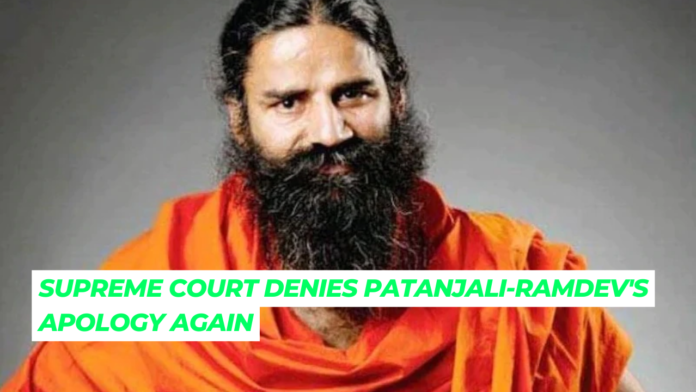The recent developments in the Patanjali-Ramdev misleading ads case have stirred significant attention, with the Supreme Court refusing to accept any apologies from the defendants and issuing a stern warning of potential consequences for contempt of court.
Introduction to the Patanjali-Ramdev Misleading Ads Case
In recent years, the issue of misleading advertisements has become a matter of increasing concern, especially in the context of health and wellness products. The case involving Patanjali, a prominent Indian consumer goods company founded by Baba Ramdev, has been at the forefront of this debate.
Background of the Case
The case originated from complaints regarding the allegedly misleading claims made by Patanjali-Ramdev products in their advertisements. Various consumer rights groups and individuals raised concerns about the authenticity and efficacy of the products promoted by the company.
Supreme Court’s Refusal of Apology
Despite multiple opportunities, including earlier warnings and notices, Patanjali-Ramdev failed to provide satisfactory explanations or retract the misleading advertisements. Consequently, the Supreme Court recently refused to accept any apologies from the defendants, emphasizing the seriousness of the matter.
Warnings Issued by the Supreme Court
The Supreme Court’s refusal to entertain apologies is accompanied by a strong warning to the defendants. The court has made it clear that any further disregard for its directives could result in severe consequences, including potential charges of contempt of court.
Response from Patanjali-Ramdev
In response to the Supreme Court’s stance, representatives from Patanjali-Ramdev have issued statements reaffirming their commitment to legal compliance. However, the specifics of their legal strategy and potential course of action remain unclear.
Public Reaction and Media Coverage
The developments in the case have garnered significant attention from the public and media alike. While some segments of society have expressed support for stricter enforcement of advertising regulations, others await further clarity on the legal proceedings.
Implications for Advertising Industry
The Patanjali-Ramdev case serves as a critical juncture for the advertising industry, highlighting the importance of upholding ethical standards and ensuring transparency in marketing practices. The outcome of this case may set a precedent for future regulatory actions.
Legal Precedents and Contempt Cases
Historically, cases involving contempt of court have had far-reaching implications, often resulting in substantial penalties for the defendants. The Patanjali-Ramdev case adds to this legacy, underscoring the judiciary’s commitment to upholding its authority.
Calls for Stricter Regulations
The controversy surrounding Patanjali-Ramdev’s advertisements has reignited calls for stricter regulations governing the advertising industry. Advocates argue that robust oversight mechanisms are essential to protect consumers from deceptive marketing tactics.
Corporate Responsibility and Ethics
At its core, the Patanjali-Ramdev case raises fundamental questions about corporate responsibility and ethical conduct. Businesses must recognize their obligations to consumers and society at large, prioritizing integrity and transparency in their operations.
Potential Outcomes
As the legal proceedings unfold, speculation abounds regarding the potential outcomes of the case. While some anticipate a resolution through amicable means, others brace for protracted legal battles with significant ramifications for all parties involved.
Quick Review:
Q1.What were the specific claims made by Patanjali-Ramdev in their advertisements?
Ans. Patanjali-Ramdev’s advertisements purported various health and wellness benefits associated with their products, ranging from immunity-boosting properties to miraculous healing capabilities.
Q2.Has Patanjali-Ramdev faced similar legal challenges in the past?
Ans. Yes, the company has previously been embroiled in controversies surrounding the authenticity and efficacy of its products, leading to legal scrutiny and public outcry.
Q3.What are the potential consequences of contempt of court in this case?
Ans. Contempt of court carries serious penalties, including fines, imprisonment, or both, depending on the severity of the offense and the discretion of the judiciary.

